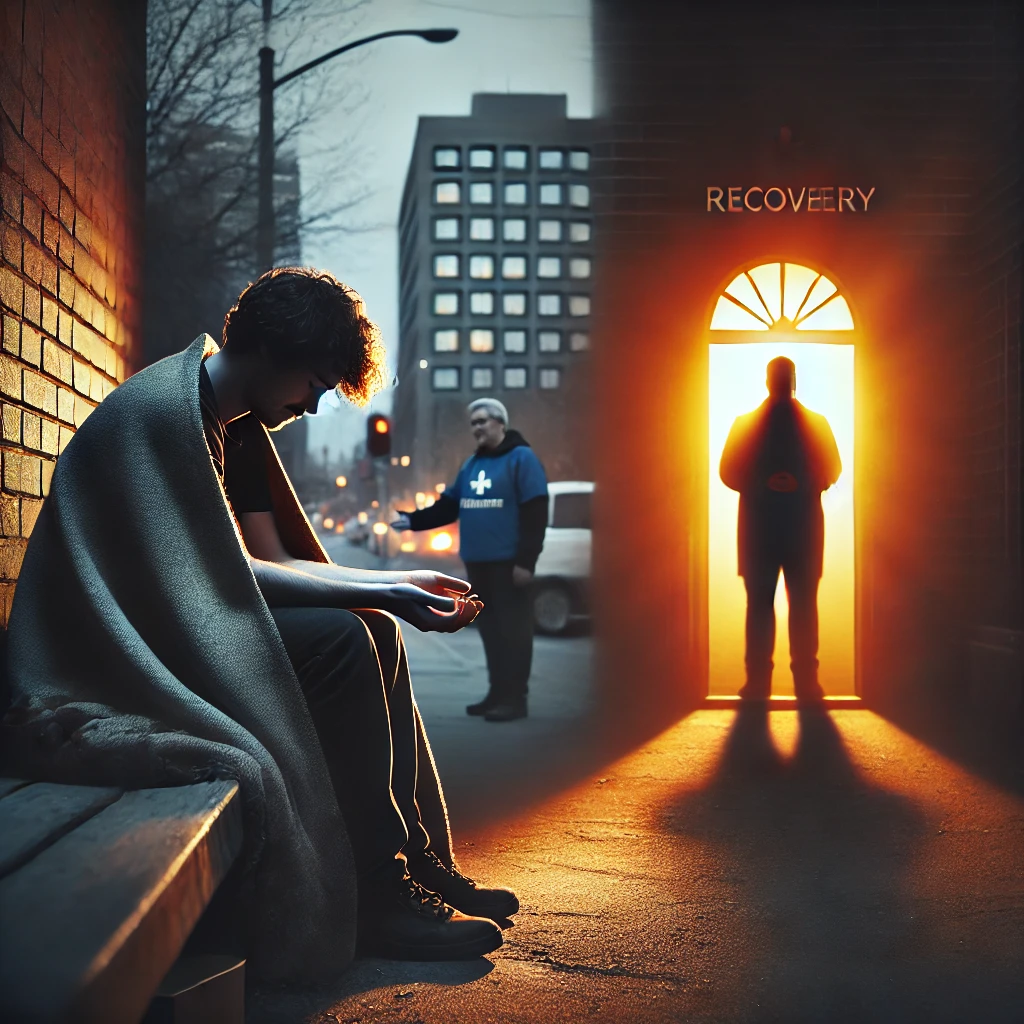The Reality of Addiction: Understanding the Challenges and Solutions
Addiction is often misunderstood. Many people view it as a moral failing or a choice, but in reality, addiction is a complex medical condition that affects the brain, body, and overall well-being of an individual. At IHARC, we see firsthand how addiction impacts people experiencing homelessness, and we advocate for evidence-based, compassionate solutions that truly help those in need.
Understanding Addiction: More Than Just a Choice
Addiction is not simply a matter of willpower. It is a chronic disease that alters brain chemistry, affecting decision-making, impulse control, and behavior. When someone becomes addicted to a substance—whether it’s alcohol, opioids, methamphetamine, or another drug—their brain develops a dependence that makes quitting extremely difficult without proper support.
Many factors contribute to addiction, including:
- Genetics – Some people are more predisposed to addiction due to family history.
- Trauma & Mental Health – Many individuals struggling with addiction have experienced childhood trauma, domestic violence, or other significant emotional distress.
- Environmental Factors – Social and economic conditions, such as poverty and homelessness, often increase the likelihood of substance use.
- Chronic Pain & Medical Issues – Prescription opioid use for pain management can sometimes lead to dependence.
Recognizing addiction as a disease rather than a personal failing is the first step in creating a more compassionate and effective approach to recovery.
The Link Between Addiction and Homelessness
The relationship between homelessness and addiction is complex. While some individuals struggling with addiction may lose their housing due to substance use, many others turn to drugs or alcohol as a means of coping with life on the streets.
Some key issues include:
- Self-Medication – Individuals experiencing homelessness often use substances to numb physical pain, trauma, or mental health struggles.
- Lack of Access to Treatment – Many traditional rehab programs require stable housing, which leaves unhoused individuals without many options.
- Criminalization Instead of Support – Instead of treatment, many people with addiction end up in jail, which does nothing to address the underlying causes of substance use.
- Stigma and Discrimination – Society often judges those with addiction harshly, making it even harder for individuals to seek help.
Without stable housing and proper support, breaking the cycle of addiction becomes incredibly challenging. This is why harm reduction strategies and Housing First approaches are crucial in addressing these interconnected issues.
Harm Reduction: A Life-Saving Approach
At IHARC, we support harm reduction because it prioritizes saving lives and reducing harm rather than punishing people for substance use. Harm reduction acknowledges that complete abstinence may not be immediately possible for everyone, and instead, it focuses on minimizing the risks associated with drug use while also mitigating harm to the broader community.
Some harm reduction strategies include:
- Naloxone Distribution – Providing people with access to naloxone (Narcan) to reverse opioid overdoses.
- Needle Exchange Programs – Offering clean syringes to prevent the spread of HIV and hepatitis C while also implementing proper disposal measures to reduce public health risks.
- Fentanyl Testing Strips – Helping individuals check their substances for dangerous additives like fentanyl.
- Outreach & Peer Support – Engaging with individuals without judgment and connecting them to resources when they are ready.
- Community Safety Initiatives – Working with local stakeholders to ensure public spaces remain safe and clean for everyone.
Critics sometimes argue that harm reduction enables addiction, but the reality is that it keeps people alive, reduces public health hazards, and increases the likelihood that individuals will seek treatment when they are ready.
Long-Term Solutions: Moving from Harm Reduction to Recovery
While harm reduction is essential, long-term solutions must focus on accessible treatment options, stable housing, and mental health support. Some key approaches include:
- Housing First Programs – Providing housing without preconditions so individuals have a stable foundation to begin their recovery journey.
- Trauma-Informed Care – Recognizing and addressing past trauma as a critical part of addiction recovery.
- Accessible Detox and Rehab Services – Ensuring that people can access treatment without barriers like income, insurance, or housing requirements.
- Employment and Life Skills Programs – Helping individuals build a sustainable future after recovery.
How You Can Help
The fight against addiction requires community support. Here are a few ways you can help:
- Educate Yourself and Others – Challenge harmful myths about addiction and advocate for compassionate solutions.
- Support Harm Reduction Programs – Donate or volunteer at organizations that provide life-saving harm reduction services.
- Advocate for Policy Change – Push for policies that support evidence-based addiction treatment rather than criminalization.
- Be Compassionate – Treat individuals struggling with addiction with dignity and understanding.
Final Thoughts
Addiction is a disease, not a moral failing. At IHARC, we believe in meeting people where they are, providing them with the tools they need to reduce harm, and supporting them on their journey to recovery. The more we understand addiction and approach it with compassion, the more lives we can save.
If you or someone you know needs support, IHARC is here to help. Reach out to us today.




0 Comments